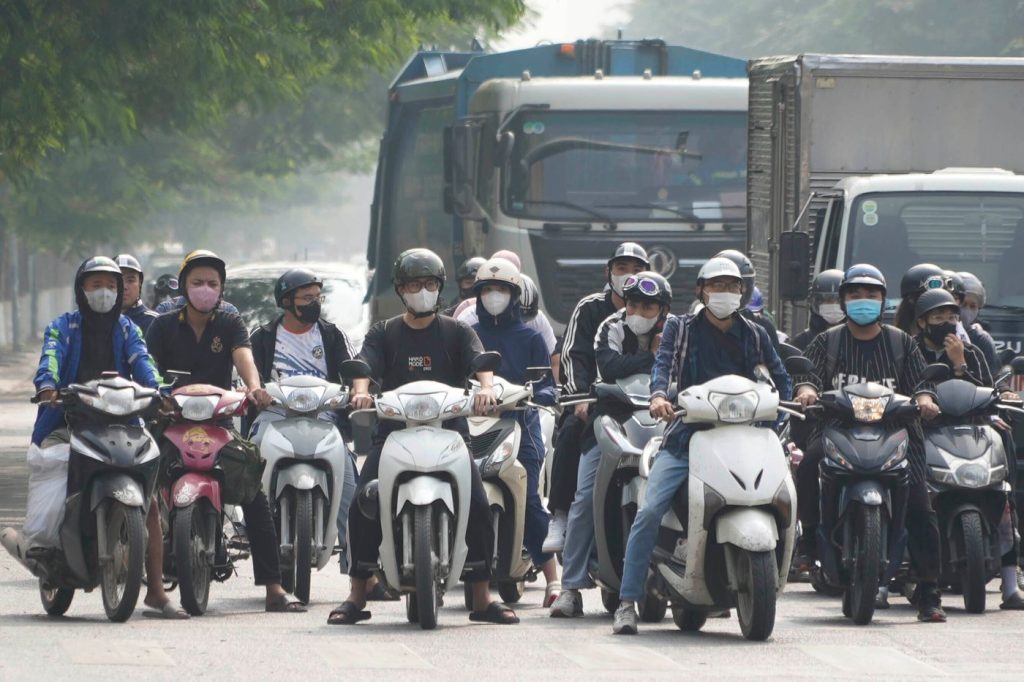In a significant move to combat air pollution, Vietnam has announced a ban on fossil-fuel motorcycles and mopeds in the central area of Hanoi, set to take effect in July 2026. This initiative, reported by state media, is part of a broader effort to improve air quality nationwide. The directive was issued by Vietnamese Prime Minister Pham Minh Chinh and specifically targets the area within and along the main ring road that encloses central Hanoi. The local government is responsible for implementing the phased ban of these two-wheelers by the designated deadline.
Motorcycles are the predominant means of transportation for most of Hanoi’s 8 million residents, with around 7 million motorcycles and just over a million cars in the city. As disposable incomes rise, there has been a noticeable shift toward private vehicle ownership, which has intensified the challenges of air pollution from vehicular traffic. Hanoi frequently experiences heavy smog, making it one of the most polluted cities in the world, prompting the need for urgent action.
Vietnam is also prioritizing a transition from fossil fuel to electric vehicles (EVs) to address pollution and confront climate change. The local electric vehicle manufacturer, VinFast, is at the forefront of this shift, currently holding nearly 20% of the market share, according to the European Chamber of Commerce. Despite its leadership in the EV sector, VinFast still possesses a minimal share of the two-wheeler market.
However, many residents express concern regarding the lack of clarity in the plan to phase out these vehicles. Nguyen Van Hung, a 62-year-old motorcycle taxi driver who has operated in Hanoi for three decades, worries that the ban will disproportionately affect the working class. He emphasizes that many individuals, such as delivery drivers and those who rely on ride-hailing services, depend on motorcycles for their livelihoods. "How can people just discard their vehicles?" he questioned.
Others, like 32-year-old office clerk Hoang Duy Dung, support the goal of cleaner air but feel that the timeline for implementation is unrealistic. He believes more investment is needed in public transportation and additional support measures before enforcing such a significant change in transportation policy. Dung noted the urgent necessity for better public transport solutions to support the shift away from fossil-fuel two-wheelers.
Central Hanoi hosts a majority of the city’s commercial activity, encompassing offices, government buildings, and other business hubs. Following the initial phase of the ban, a second phase will commence in January 2028, broadening the ban's scope to encompass all fossil-fuel two-wheelers and imposing restrictions on certain gasoline-powered cars.
In conjunction with the phased ban on two-wheelers, the government will implement other initiatives aimed at reducing pollution. These measures include upgrading waste-treatment facilities, employing digital technologies to monitor pollution levels, and introducing harsher penalties for violators of environmental regulations. Additionally, a system is being established to incentivize whistleblowers who report environmental breaches.










